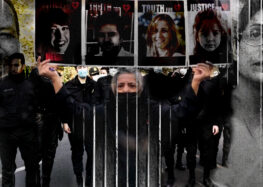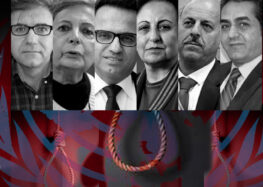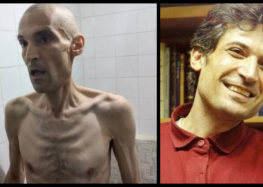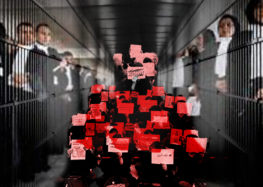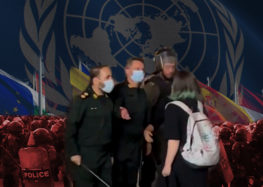Iranian Human Rights Attorneys Speak Out Against State-Approved List of 20 Lawyers For “National Security” Cases
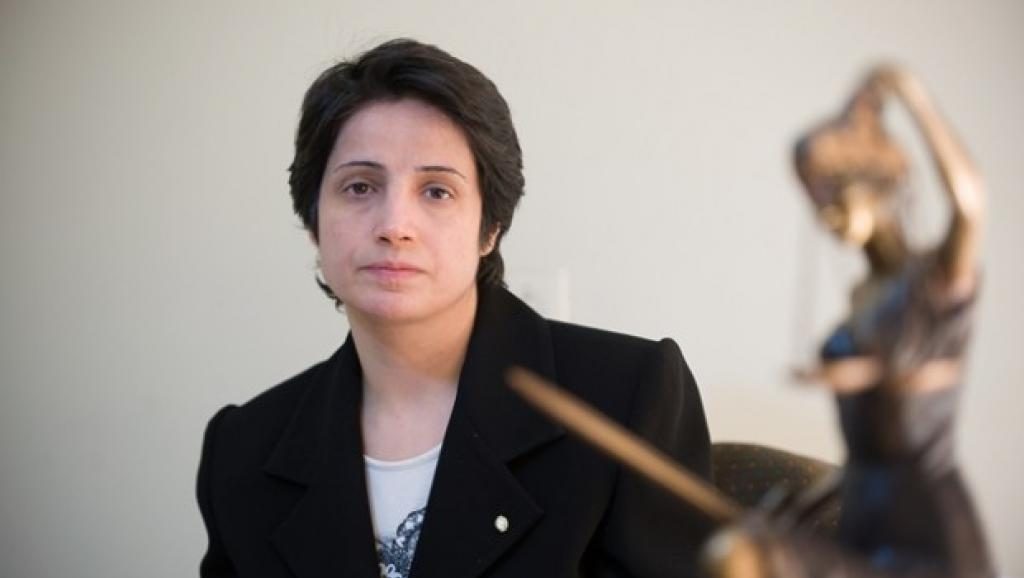
Human rights lawyers in Iran are speaking out against a list released by the judiciary designating 20 state-approved lawyers to exclusively represent detainees held on politically motivated charges.
“A number of lawyers have said they are ready to hold a protest sit-in if necessary,” prominent defense attorney Nasrin Sotoudeh told the Center for Human Rights in Iran (CHRI) on June 4, 2018.
Iran’s Constitution sets no limits or conditions on the right to legal counsel and Article 35 states, “Both parties to a lawsuit have the right in all courts of law to select an attorney, and if they are unable to do so, arrangements must be made to provide them with legal counsel.”
According to Article 48 of Iran’s Criminal Procedures Regulations, people also have the right to ask for and have a meeting with a lawyer as soon as they are detained.
However, the “Note to Article 48” makes exceptions: “In cases of crimes against internal or external security…during the investigation phase, the parties to the dispute are to select their attorneys from a list approved by the head of the judiciary.”
Without mentioning names, Sotoudeh, who was imprisoned for three years in Iran for representing activists and minorities held on politically motivated charges, said some of the lawyers on the state-approved list have vowed to refuse to cooperate with the judiciary.
“In the past, political suspects had a limited right to defend themselves and lawyers could take up their cases and carry out their professional duties despite all the dangers they faced, but now even that limited right is being completely eliminated,” Sotoudeh said.
On the other hand, reformist attorney Ali Mojtahedzade pointed out in a tweet on June 4 that one of the state-approved lawyers is Abdolreza Mohabbati, who acted as assistant prosecutor in several show trials of political activists accused of challenging the result of Iran’s 2009 presidential election.
“This action by the judiciary chief [Sadegh Larijani], which is based on Article 48 of the Criminal Procedures Regulations, is intrinsically against Article 35 of the Constitution, which gives suspects the right to select a lawyer,” Sotoudeh said.
In January 2018, judicial offices in several Iranian cities received state-approved lists of lawyers allowed by the judicial branch to take on cases involving national security charges at the preliminary investigation stage.
On June 2, human rights lawyer Amir Raeisian criticized the list in a tweet.
“The important fact about the judiciary’s list is that it does not include any women lawyers or any senior members of the Iranian Bar Association and human rights lawyers,” Raeisian wrote.
“Some of my colleagues and I have been verbally told that we absolutely cannot accept political and security cases because we are not among the 20 listed lawyers—not even when the case goes to trial,” he added. “But this makes no sense because the Note to Article 48 is applicable for the investigation stage.”
On June 3, human rights lawyer Hossein Taj tweeted, “The Note to Article 48… is a big step backwards and a great mistake by the country’s judicial system. What makes it a bigger mistake is that it has been extended from the investigation stage to the courts.”
Sotoudeh told CHRI that by approving only 20 lawyers in Tehran Province, the judiciary has disqualified 20,000 licensed lawyers and seriously undermined prisoners’ due process rights, including the right to counsel and a fair trial.
“Just imagine that a suspect has been charged by powerful military and security agencies and he goes in front of a judge in a court in Evin Prison under an intense climate of fear and intimidation and … his only hope is to have an independent and honorable lawyer to defend him but now, with the implementation of the Note to Article 48, that path has been closed and we have to say goodbye to the legal profession in Iran,” Sotoudeh said.
Sotoudeh also expressed concern that the list could result in further concealment of the details of human rights cases in Iran, by further pressuring lawyers and the detainees’ families to refuse to speak out about the issues.
“Everywhere in the world, it is usually the lawyers who act as the guardians of the rights of suspects and society and freedom of expression,” she said. “Sharing information about a case is effective in that the judge will feel that his decisions are being watched by the public.”
She added: “But the judiciary’s action is going to cut the flow of information regarding political cases and make it easier to violate the rights of suspects and to interrogate, prosecute and sentence political and civil rights activists without information reaching the public.”

